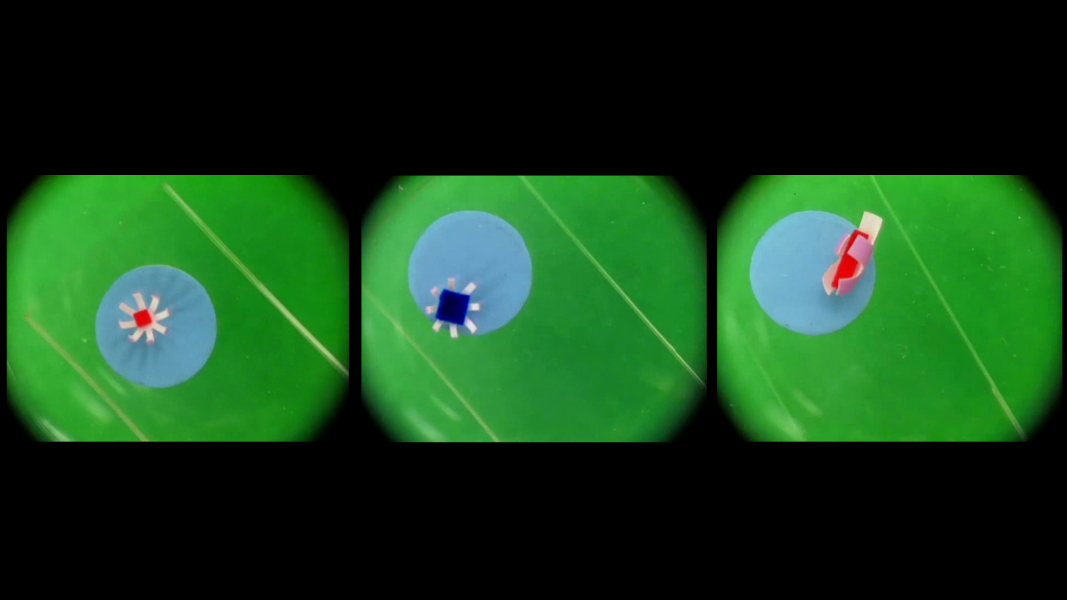Robots are gaining increasing importance in daily life. For applications in the medical field such as drug delivery and tissue biopsy, soft, tetherless, stimuli-responsive robotic systems are desired.
In their article in Advanced Materials, Professor K. Jimmy Hsia from Carnegie Mellon University and his co-workers successfully assemble soft robotic grippers through the self-folding of stimuli-responsive, planar bilayers and demonstrate their functionalities to transport cargoes on demand.
When subjected to an external stimulus, differential expansion of the bilayer drives the self-folding behavior. Through mechanistic analysis, the authors identify the design principles to realize axisymmetric, cage-like configurations or asymmetric, cylindrical shapes from polymeric bilayers.
The magnetic cargo retention capabilities were investigated for several bilayer designs with varying mismatch strains. At low mismatch strain, the bilayers essentially remain planar and hence are unable to retain a cargo. At high mismatch strains, cylindrically folded bilayers fail to retain cargoes, but axisymmetrically folded bilayers can successfully transport cargoes to a desired location.
The grippers can also discriminate between objects, with the retention capability dependent on both the object size and the gripper shape.
A magnetically responsive bilayer demonstrates the applicability of these design principles to a variety of material systems responsive to heat, light, magnetic fields, residual stresses, biochemical enzymes, and pH.
To learn more about this elegant approach to realize soft robotic grippers, please visit the Advanced Materials homepage.

















